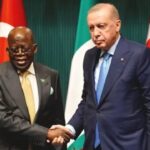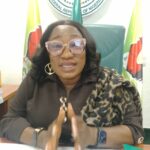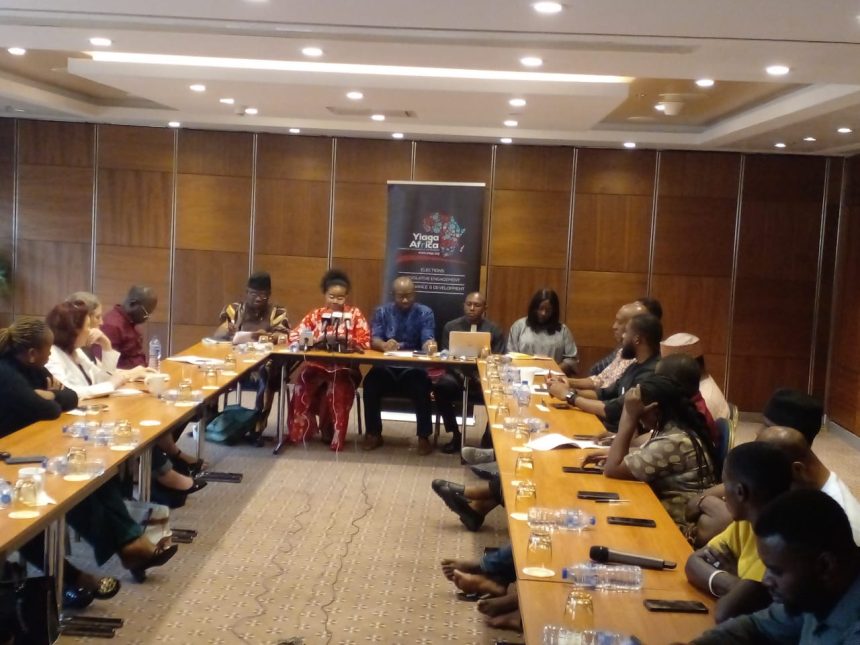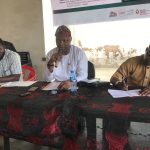Make Your BVAS, Mock Accreditation Report Public, Yiaga Africa Tells INEC
An election monitoring group, under the auspices of Yiaga Africa, has asked the Independent National Electoral Commission (INEC) to make its report on the just conducted mock accreditation exercise, particularly the BVAS testing public.
According to the group, the findings or observations gathered by INEC during its mock accreditation exercise would prove useful to the voting public, not just the electoral umpire.
Executive Director, Yiaga Africa, Samson Itodo made the suggestion on Friday, in Abuja to present the organisation’s Report on Bimodal Voters Accreditation System(BVAS) Testing, Mock Accreditation and Electronic Transmission of Accreditation Data.
According to Itodo, it is the expectation of Nigerians that the deployment of electoral technologies must conform to the principles of transparency, accountability, suitability, cost-effectiveness, security, accuracy, and inclusion.
His words, “it behooves INEC to make public its reports on the set-up and testing of the BVAS and mock accreditation and provide updates on the steps taken to address the challenges identified during the BVAS testing and mock accreditation”.
He noted that the mock exercise confirmed INEC assigned registered voters to new polling units without prior information to the voters revealing a potential operational challenge the migration of voters to polling units could pose on election day where voters are unable to locate their polling units.
Itodo also said INEC should investigate cases where the BVAS failed to authenticate the biometrics of voters, despite having the names on the register, stressing that it will inspire public confidence in the BVAS and IReV.
Yiaga Africa also suggested that INEC should notify all voters affected by the migration of polling units of changes to their polling units via text messages, emails, and phone calls if possible.
“In addition, a copy of the voter register should be posted across polling units for voter to confirm their polling unit.
“This should be backed by a national campaign on locate and confirm your polling units via online and offline platforms,” he stated.
Itodo said there was need for INEC to replicate the transmission of the accreditation data on the BVAS to the IReV in the general election.
In his words, transmitting accreditation figures enhances the transparency of elections because it gives citizens the opportunity to check the consistency of the number of accredited voters recorded on the BVAS and the accreditation figures entered on the result sheet by polling officials.
He equally suggested that INEC should educate polling officials on recording and documentation of election figures, to avoid discrepancies between the accreditation data uploaded by the BVAS to the IReV and the figures recorded on the polling unit result sheet.
He said INEC should ensure all the BVAS devices deployed for the mock accreditation were reconfigured to read zero in the field for accreditation before deploying for the general election.
He said that a monitoring team to supervise and monitor the reconfiguration is highly recommended.
Itodo said that Yiaga Africa’s recommendations were against the backdrop of INEC’s nationwide accreditation exercise.
Director of Programmes ,Yiaga Africa, Cynthia Mbamalu said that in the states observed by Yiaga Africa, the BVAS testing was successful and the ICT staff demonstrated good knowledge of the systems and testing guidelines.
She however, said some devices failed activation and configuration due to hardware failures such as problematic cameras, screens and power buttons.
She said the exercise was also blighted by poor internet connectivity.
“Network challenges were experienced mostly in Adamawa, Taraba, Akwa Ibom and Rivers states.
“More than half of the locations visited during the four visits experienced network challenges which hindered the activation of the machines on the days observed,”she stated.












